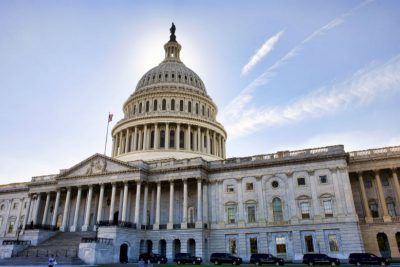
The House of Representatives voted today to pass legislation that would crack down on illegal robocalls.
The bipartisan Telephone Robocall Abuse Criminal Enforcement and Deterrence (TRACED) Act would require telephone companies to implement caller authentication systems and give consumers and service providers the power to block unauthenticated calls.
The bill would also give law enforcement and the FCC the tools they need to deter scam calls and investigate robocallers that break the law.
Between 2016 and 2018, U.S. consumers saw an estimated 64 percent increase in unwanted robocalls. Last month alone, Virginians received more than 141 million robocalls—nearly 19 robocalls per person by the end of November.
“In Virginia, we’ve seen a drastic uptick of annoying and abusive robocalls. These calls are more than a nuisance—they can lead to identity theft, block emergency operations, or spread fraudulent information to seniors,” Rep. Abigail Spanberger (D-7th) said. “Today, I joined Republicans and Democrats in passing a bipartisan bill that would help identify unwanted callers, give officials additional leeway to hold telemarketers accountable, and prevent future phone scams. We should all be able to agree on achieving these goals—and at a time of rampant robocall activities in Central Virginia and across the country, I hope the Senate will move quickly to advance this much-needed legislation.”
The TRACED Act includes a provision to make sure telephone service providers don’t pass on the cost of new authentication technologies to consumers. Additionally, the bill would increase the FCC’s civil penalties against robocallers to up to $10,000 per call.
And as robocall scams continue to grow across the country, the legislation would strengthen civil forfeiture penalties for those who are caught perpetuating these schemes.
The TRACED Act is led by Rep. Frank Pallone, Jr. (D-NJ-06) in the U.S. House and Sen. John Thune (R-SD) in the U.S. Senate.
The legislation included a bill authored by Fourth District Democrat Donald McEachin, H.R. 3325, the Locking Up Robocallers Act of 2019.
“We are united in our opposition to unsolicited robocalls and today, the House took an important step to combat the robocaller epidemic,” McEachin said. “Virginians and all Americans are sick and tired of these unwanted calls – not only are they a nuisance, but they can be predatory, exploiting the most vulnerable among us. The TRACED Act will help reduce the number of illegal robocalls received and protect consumers.
“I am pleased that my bill, the Locking Up Robocallers Act, was included in the TRACED Act. The bipartisan Locking Up Robocallers Act provides critical information to the Department of Justice, ensuring greater transparency and oversight over the enforcement of robocaller infractions.
“Today takes us one step closer to cracking down on these predatory calls, and I look forward to the bill becoming law,” McEachin said.
Also joining in the vote passing the TRACED Act was Second District Democrat Elaine Luria.
“For many Coastal Virginians, robocalls are more than just a nuisance, they are predatory scams,” Luria said. “Too often, robocallers steal money and sensitive information from hardworking families. I am pleased to join lawmakers on both sides of the aisle to combat this growing epidemic.”
Ninth District Republican Morgan Griffith is also on board with the effort.
“Robocalls are a great annoyance. Worse, robocalls can swindle people out of their personal information and savings and tie up phone lines needed for legitimate purposes,” Griffith said. “The TRACED Act will help reduce this scourge. It will require phone companies to implement authentication and blocking measures at no cost to consumers while improving enforcement against bad actors. I voted for the TRACED Act so Americans can have control of their phones again.”
Reporting by Chris Graham










